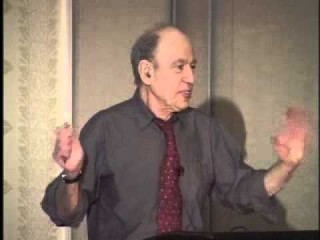A beginner’s guide to: Professor Barak Rosenshine
Best known for:
Rosenshine's research has contributed significantly to understanding the effectiveness of various instructional methods, which culminated in his identification of 10 principles of effective instruction.
Quick facts:
Born: 1930, Chicago, Illinois
Deceased: May 2017, Urbana, Illinois
Nationality: American
Where did he work:
Barak Rosenshine was a professor in the Department of Educational Psychology at the University of Illinois. He gained a BA in psychology from the University of Chicago in 1957, following which he worked as a high school history teacher, leaving in 1963 to focus on pursuing a PhD in education at Stanford University. He graduated from Stanford in 1968 and taught at Temple University for two years before moving to the University of Illinois in 1971.
What did he research:
Rosenshine's research focused on learning instruction, teacher performance, and student achievement. He published numerous articles and working with Norma Furst identified five characteristics of teacher behaviour which have served as a framework for research on teacher performance: clarity of exposition, enthusiasm, task orientation, varied approaches, and opportunities to learn.
Rosenshine's 17 Principles of Effective Instruction (version expanding on his initial 10 principles)
- Begin a lesson with a short review of previous learning.
- Present new material in small steps with student practice after each step.
- Limit the amount of material students receive at one time.
- Give clear and detailed instructions and explanations.
- Ask a large number of questions and check for understanding.
- Provide a high level of active practice for all students.
- Guide students as they begin to practice.
- Think aloud and model steps.Provide models of worked-out problems.
- Ask students to explain what they have learned.
- Check the responses of all students.
- Provide systematic feedback and corrections.
- Use more time to provide explanations.
- Provide many examples.
- Reteach material when necessary.
- Prepare students for independent practice.
- Monitor students when they begin independent practice.
What did he say:
"Many of the skills taught in classrooms can be conveyed by providing prompts, modeling use of the prompt, and then guiding students as they gain independence."
_______________________________________________________________________________________________________________________________________________
"One characteristic of effective teachers is their ability to anticipate students' errors and warn them about possible errors some of them are likely to make."
What do others say:
"My admiration for Rosenshine is largely informed by my experience working with teachers in various schools and colleges where I've been trying to engage people with research in order to support them to improve their practice. For me, it is the best, most clear and comprehensive guide to evidence-informed teaching there is."
Tom Sherrington,
Why you should consider reading more:
In his June 2018 blog (link below) Tom Sherrington outlines why he believes Rosenshine's Principles of Instruction is a seminal work:
- It resonates for teachers of all subjects and contexts – because it focuses on aspects of teaching that are pretty much universal: questioning, practice, building knowledge. There are good examples from English and Maths lessons but other teachers could easily extrapolate to their own subject-specific issues.
- It makes direct links from research to practice – each of the 10 sections are written in two parts: Research Findings and then In the classroom. The paper is fully referenced for future follow-up.
- It does an excellent job in helping teachers to link practice to cognitive psychology, supporting the formation of a sound theory of action – that mental model teachers need providing a link between their actions and the learning process. There are multiple explanatory references to ideas about memory and cognitive load theory. For each practical strategy, there is an underpinning model based on evidence.
- It has teacher-centred authenticity- it feels like Rosenshine knows what really goes on. The research is often based on linking classroom observations to student outcomes, and the examples given show a strong understanding of the real things teachers do.
- The simple language comparing 'teachers who were more effective or more successful' with 'teachers who were less successful' is persuasive. It's not as crude as saying 'good vs bad' – the language lays a path to improvement from less successful to more successful. Who wouldn't want to be in the group of 'more effective teachers'?! The tone of the article feels helpful rather than judgemental – which is pretty hard to achieve.
- There are four very clear strands that run through the 10 sections – reviewing material, questioning, explaining and modelling, practice. Each of one these can be a focus area for improvement so there are multiple ways to engage with the ideas and to find a focus for deliberate practice.
Top reads:
Teaching Behaviours and Student Achievement (IEA studies): 1971 Published by the National Foundation for Educational Research (NfER)
Advances in Research on Instruction: 1996 in J.W. Lloyd, E.J. Kameanui, and D. Chard (Eds.) (1997) Issues in educating students with disabilities. Mahwah, N.J.: Lawrence Erlbaum: Pp. 197-221
Other related links:
School Reform News: what characterises an effective teacher? An interview with Barak Rosenshine School Reform News
Principles of Instruction: research-based strategies that all teachers should know (2012) American Educator
The danger of oversimplifying the traditional vs progressive debate: Rosenshine's research showed me new nuances (2017) Robbie Coleman for the Chartered College of Teaching (CCT membership required to view the full post)
Exploring Barak Rosenshine's seminal Principles of Instruction: why it is THE must-read for all teachers (2018) teacherhead (Tom Sherrington)
Related Posts
Comments
By accepting you will be accessing a service provided by a third-party external to https://edcentral.uk/


